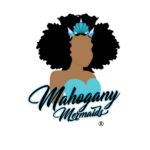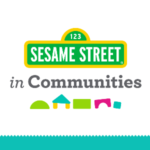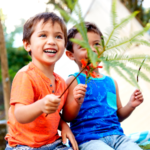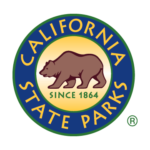Environmental Education
- Climate Change (17)
Created in August of 2016 by CEO Aliyah Griffith, Mahogany Mermaids promotes awareness and advocacy that create opportunities for children and youth of color to explore and join the aquatic sciences.
A primary goal of Mahogany Mermaids is to connect, impact, and outreach to as many students and youth as possible. To achieve this, they have offered education tools via their website to build ocean awareness and conservation efforts for students 4th – 12th grade. Their resource page also offers uniquely created activities connected to national aquariums as well as links to outside resources.
Climate change is an important learning and advocacy initiative for today’s youth. This free PBL curriculum resource is an engaging and interactive curriculum tailored for grades K-12, focusing on climate change education.
In this engaging and influential program, youth will:
Learn about global climate and environmental problems, including the plastic trash crisis, pollution and its effects, the shortage of fresh water, and other health threats.
Discover how these problems affect their communities.
Explore how their personal choices affect the environment.
Create a proposal to solve a problem related to climate change or the environment in their community.
Present the proposal to experts.
Present the final version of their proposal to their peers at a culminating event
The Office of Climate Change and Health Equity addresses the impact of climate change on the health of the American people. Exercising powers of convening, coordination and collaboration, the Office serves as a department-wide hub for climate change and health policy, programming, and analysis, in pursuit of environmental justice and equitable health outcomes. The Office also facilitates the use of regulatory and statutory powers of the Department of Health and Human Services to address matters affecting disadvantaged communities and people on the frontlines of the climate crisis. The Office works alongside community-based organizations, non-governmental organizations, academia, business, industry, along with, state, tribal, local, and territorial governments, to define and implement strategies, conduct strategic outreach and communications, and train and empower community residents.
Sesame Street in Communities is an online community for sharing Sesame Street’s free educational resources with the adults in children’s lives.
From planning a road trip around “rockhounding” opportunities to building your own outdoor play area, these fun family activities are guaranteed to spark your child’s interest in nature.
Parks Online Resources for Teachers and Students (PORTS) program provides FREE live interactive videoconference programs, also known as virtual field trips, to expand learning beyond the classroom walls. K-12 students from California and around the world are connecting with live interpretive rangers and learning academic content standards within the context of California’s dynamic state park system.
No permission slips required. These virtual events let educators take students to amazing places and give them remarkable experiences, without ever leaving the classroom.
Designed for grades 5-8 but customizable for all ages, virtual field trips allow students to travel the world and explore natural environments without leaving the classroom. Each virtual field trip contains a video, teacher guide, and student activities.
Get up close and personal with parks through virtual tours. Learn more about the history of these legendary places and how essential their protection and preservation is in ensuring these sites are enjoyed for generations to come.
Recycle Rex is a spokesdinosaur for CalRecycle (Department of Resources Recycling and Recovery). His message is simple: “Recycle, reduce, reuse, and close the loop.” Recycling is one of the easiest and best things we can do for Planet Earth. By recycling and then buying recycled products for home, school and play, we can really make a difference.
Students will be able to determine the central ideas of a video about youth mobilization on plastic waste in the Amazon rainforest, analyze the causes of plastic pollution globally and make local connections, and use persuasive writing and visual arts skills to inspire change in their own communities
Here you will find reading comprehension tools, activities and other resources to bring “Losing Earth,” The New York Times Magazine’s special issue on climate change, into the classroom and beyond.








